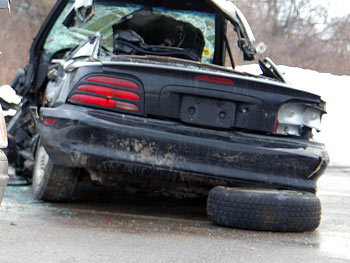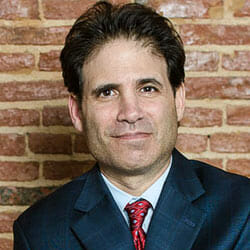 If you’ve ever been in an accident or suffered through a distressing, abnormal event, you probably remember how you felt afterwards—shaky, confused, tearful, perhaps even nauseous. Feeling upset, even extremely upset, after trauma is natural and normal. But what if you feel worse, not better, after a couple of weeks?
If you’ve ever been in an accident or suffered through a distressing, abnormal event, you probably remember how you felt afterwards—shaky, confused, tearful, perhaps even nauseous. Feeling upset, even extremely upset, after trauma is natural and normal. But what if you feel worse, not better, after a couple of weeks?
Differences Between the “Normal Response” (PTS) and PTSD
After a shocking event, you will undergo emotional and mental stresses and changes, known as post-traumatic stress (PTS) It is natural to feel numb or “crazy,” have bad dreams, feel fearful (especially if you are in a situation that reminds you of your trauma), and to feel unable to stop thinking about the event. Your heart may race, and you might feel physically shaky. You may feel distracted and unable to concentrate on your work. Such symptoms usually subside within a few days to a few weeks. These reactions are perfectly normal.
However, if your symptoms don’t fade or if your anxieties increase after a few weeks have passed, you may be stuck in the disorder itself: post-traumatic stress disorder, or PTSD. You will probably need help to heal and move on.
What is PTSD?
Many of us may associate PTSD with those who have experienced military combat. But anyone who has gone through an uncontrollable, dangerous situation can develop PTSD.
PTSD is your body’s “fight or flight” stress response gone wrong, so that you feel pressured, anxious, or afraid for a long time after the event is over. Those who personally experience trauma are not the only ones who can develop this abnormal response; witnesses, emergency workers, and law enforcement officers can also be affected. Even those who didn’t directly witness the event, but are friends or family of the victim, can develop PTSD.
Not everyone who develops PTSD begins showing signs quickly. For some, it can be months or even years before symptoms appear.
The Triggers for PTSD
Many events can cause PTSD, among them:
- Automobile, boat, or plane crashes
- War
- Natural disasters
- Terrorist attacks
- Violent assault
- Sexual assault
- Childhood neglect or abuse of all kinds
- Sudden death of a loved one
- Any extreme, life-altering, or life-threatening event.
PTSD After an Accident
 Motor vehicle accidents are the leading cause of PTSD in the United States. In any given year, studies have shown that around one percent of the population ends up getting injured in a motor vehicle accident. Research has also shown that roughly nine percent of vehicular accident survivors progress from a normal stress response to PTSD.
Motor vehicle accidents are the leading cause of PTSD in the United States. In any given year, studies have shown that around one percent of the population ends up getting injured in a motor vehicle accident. Research has also shown that roughly nine percent of vehicular accident survivors progress from a normal stress response to PTSD.
Certain factors make it more likely that the survivor of an accident will develop PTSD:
- The life-threatening aspects of the accident, which trigger fears of dying
- Deaths of anyone involved in the accident, but especially loved ones
- The severity of physical trauma, such as broken bones and amputation
- The length of time it takes to recover from the accident.
Remember, PTSD is not limited only to those directly hurt by the accident. It can affect family members of the injured or deceased, witnesses, and first responders.
Symptoms of PTSD
Adults often suffer from PTSD in many ways, but there are three main sets of symptoms:
- Re-experiencing the trauma. Often these events are the most disruptive, and include nightmares, flashbacks, and persistent memories that intrude on your daily life. You can be abruptly flooded with physical reactions such as shaking, sweating, and tears. Sometimes these symptoms occur with no warning; other times, something as small as a noise or a smell can bring on the full reaction.
- Avoidance and numbing. You may try to avoid thinking about the triggering event, and avoid any activities that remind you of it, even going so far as to stop participating in activities that bring you pleasure, thus isolating yourself. You end up numb and unresponsive, unable to feel enjoyment.
- Hyperarousal and hypervigilance. With this set of symptoms, you may be constantly anxious, as if you were on “red alert,” feeling and reacting as if you are in constant danger. Sleep becomes difficult, and you may lash out at others with little provocation. You can startle easily and be unable to concentrate.
You may also feel utterly alone, plagued by guilt, depressed, hopeless, perhaps even suicidal. Substance abuse can become a problem for some, and it is a red flag, especially if you have no history of abusing alcohol or drugs.
PTSD Differences in Children
PTSD in children, especially the very young, can reveal itself in symptoms that differ from an adult’s response. For example, the child might begin exhibiting the following:
- Fear of separation from a parent
- Behavioral regression, such as a toilet-trained child having “accidents”
- Sleep disturbances and nightmares
- New phobias and fears
- Compulsively repeating elements of the trauma during play
- Aggression towards others
- Physical pain that has no apparent cause.
If your child has been in a traumatic motor vehicle accident, or has a parent who was injured or killed in one, seek treatment for the child as soon as possible.
Treatment of PTSD
Treatment of PTSD can involve desensitizing or exposure therapy, cognitive therapy, and group therapy or support group participation. Also frequently used in adults are anti-anxiety medications and anti-depressants. In children, play therapy and art therapy can help them express their feelings.
In the greater Baltimore area, treatment for PTSD is available through any number of mental health professionals, treatment centers, support groups, and medical centers. Ask your primary care physician for help or a referral if you need help in making a choice. Generally, the sooner you begin treatment, the better.
Lawyer Steven Heisler is Dedicated to Your Process
The aftermath of a vehicle collision can be life-changing for the accident victims and their family, and can take a lot of patience and dedication to overcome. If you believe another party was responsible for the injuries or losses you have suffered in a Maryland vehicular accident, Steven Heisler has the experience necessary to help you or your loved ones get their lives back on track, including obtaining compensation for PTSD therapy. Find out if you have a case—contact us for a free consultation. Please call Steven Heisler, “The Injury Lawyer,” at (410) 625-4878, or use our online contact form to learn more about the legal options available to you.

Attorney Steve Heisler
Steve Heisler decided in 1996 that he was going to focus his law practice exclusively on injury cases. Since then, he has been representing injured people against insurance companies, disreputable medical practitioners and Big Pharma, and doing it with compassion, honesty and level-headed rationality. [ Attorney Bio ]


